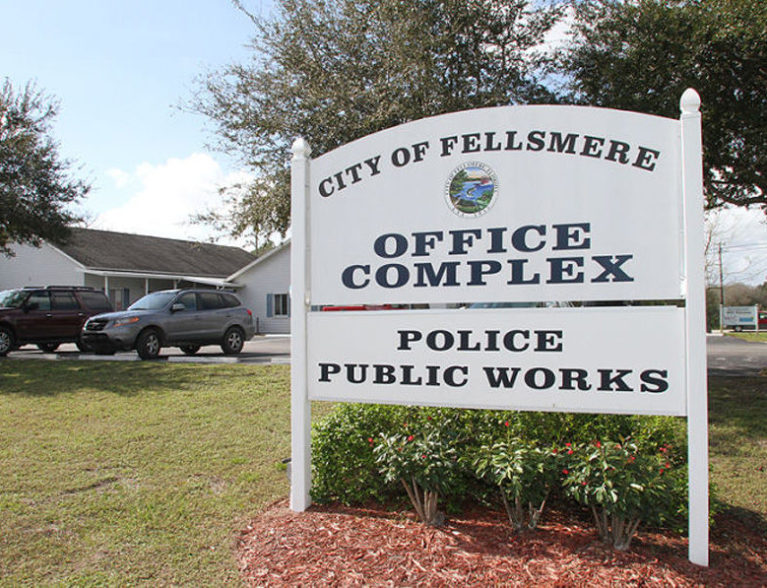
FELLSMERE — Over the years, residents will often say, “Oh, it was so peace back in ….” or “This place is getting worse – people are so rude!” With the combined efforts of the City of Fellsmere and the Pelican Island Audubon Society, a way to objectively measure the community’s progress and quality of life is underway.
The Audubon group has received a $5,000 planning grant from the Toyota TogetherGreen program to put together just such a survey for both Fellsmere and Gifford – though more funds will be needed in order to conduct the survey and analyze the data.
Dr. Graham Cox, of the Pelican Island Audubon Society, applied for the grant, hoping to get the ball rolling on collecting various pieces of data and compiling it in such a way that people can see at a glance if their community is headed in the right direction.
“Are things getting better or worse?” Dr. Cox said of the purpose for the survey – and, if they’re worse, what can be done to change course?
Dr. Cox and other members of the Pelican Island Audubon Society created a committee in 2008 or 2009 to study Indian River County – they quickly realized they should downsize the scope of their work and have since decided to work with Fellsmere and Gifford first.
As a municipality, the City of Fellsmere has its own Comprehensive Plan – essentially a strategic plan and visioning tool that addresses development, public health and safety, the environment and economics, to name a few elements.
This will be the second time a third-party group has come into Fellsmere to perform a study on quality of life issues, according to City Manager Jason Nunemaker.
The Health Department surveyed residents of the Hall Carter community, determining their needs and finding out their concerns. Armed with that information, the City was able to begin addressing those concerns and working to improve life in that neighborhood.
“We have to be receptive,” Nunemaker said of the residents’ feedback. “We can’t address it if we don’t know about it.”
Dr. Cox said one of the first steps for the survey will be to determine the indicators that will be used to measure the community.
A simple indicator could be the number of jobs available in the city – but without tying it into other factors, such as commerce, energy consumption, or the environment, the information does little to provide a picture of the city, according to Dr. Cox. Instead, a more useful indicator could tie jobs with education and transportation services.
The Pelican Island Audubon Society has little less than a year to complete the study under the terms of the Toyota TogetherGreen grant.
Nunemaker said the City will provide access to data and information as well as support for the project. The City will provide meeting space free of charge, too.
So far, the City has not been asked to kick in any funds – and Dr. Cox said he’d like to keep it that way.
“With a little luck and we figure this out, we can knock on other doors to get grants” to cover the associated costs, he said.
Expenses will depend on how the survey will be conducted – telephone calls, door-to-door, standing on street corners – Dr. Cox said.
Already, he has been to a few Neighborhood Watch meetings in Fellsmere and is considering going that route to conduct the survey.
“I think that might be the best way,” he said.
The survey needs to consist of a representative cross-section of Fellsmere’s population, which consists of Latinos, African Americans, and whites – each with their own perspective of how the city is progressing.
Telephone surveys are traditionally expensive and – in the days of caller id – not efficient. One completed survey can cost an estimated $15 to $20, according to Dr. Cox. Door-to-door surveys are tricky, too, as residents are leery of opening their doors to people carrying clipboards.
Going to meetings, though, might be just the way the volunteers can get a cross-section of the community without raising concern.
Dr. Cox plans to get going on the project in February, pulling together a group of Fellsmere volunteers who will help come up with indicators for the survey and help conduct the survey later on in the year.
Along with volunteers, Dr. Cox is seeking out people who have experience working with data in spreadsheets and those who can craft visual representations of that data.
He’d also like to hear from civic groups, churches and others in Fellsmere that would like him to make a presentation about the quality of life survey.
The ideal outcome from the survey and subsequent analysis, according to Dr. Cox, is to help inform not only the general public, but also the elected officials – affecting public policy and prioritizing government spending and projects.
By looking at the indicators in the future and comparing to where the City started, council members – and the public – could readjust plans and projects as needed to attain their future goals.
“Let’s see what vision the people really have for their community,” Dr. Cox said, and give them a way to know if they’re headed in the right direction.
Toyota TogetherGreen has invested $23.5 million across the country over the last six years, working with various Audubon societies to craft similar quality of life surveys tied to environmental conservation.



